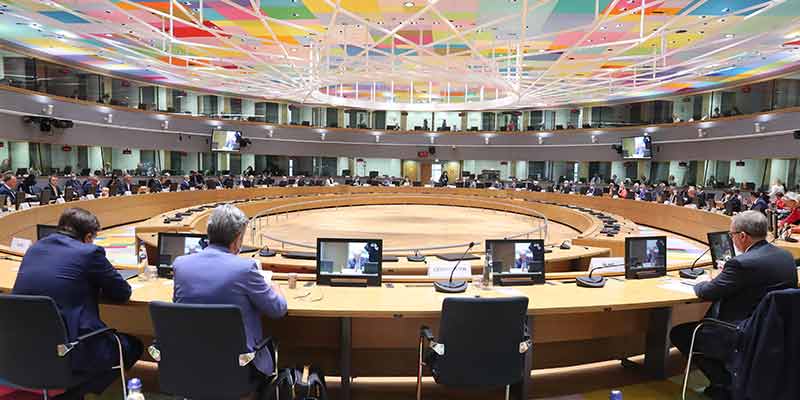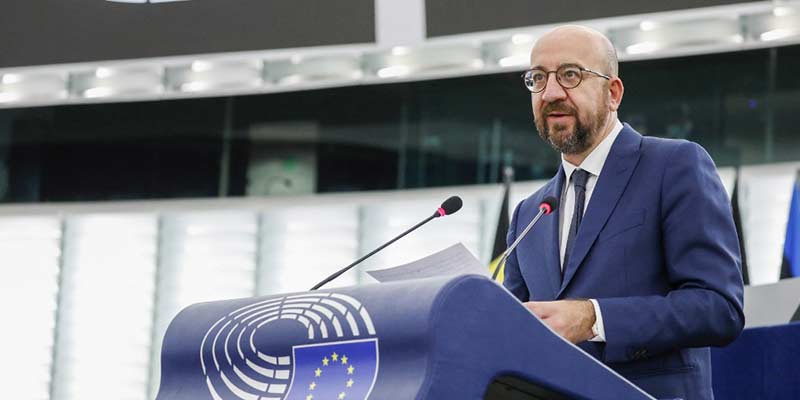- World
- Sep 01
What is the role of European Council?
• Prime Minister Narendra Modi discussed with European Council president Charles Michel the recent developments in Afghanistan and their implications for the region and the world.
• They emphasised the importance of a stable and secure Afghanistan and discussed the potential role India and the EU could play in this context.
• The two leaders agreed to remain in touch on bilateral and global issues, in particular, the situation in Afghanistan.
The European Council
• The European Council defines the European Union’s overall political direction and priorities. It is not one of the EU’s legislating institutions, so does not negotiate or adopt EU laws.
• Instead, it sets the EU’s policy agenda, traditionally by adopting ‘conclusions’ during European Council meetings which identify issues of concern and actions to take.
• European Council conclusions can also set a deadline for reaching agreement on a particular item or for the presentation of legislative proposal. In this way, the European Council is able to influence and guide the EU’s policy agenda.
Creation of European Council
• Following the Copenhagen Summit in December 1973, which made provision for summits to be held whenever necessary, the Paris Summit of December 1974, hosted by President Valéry Giscard d’Estaing, created the European Council. It was created with the intention of establishing an informal forum for discussion between heads of state or government.
• The new European Council met for the first time in March 1975 in Dublin.
• In December 2009, the Treaty of Lisbon entered into force, reforming the structure of the EU and the way in which it functions. The European Council became a fully-fledged institution with its own president. Earlier, the European Council had been an informal body and the head of the European Council was an unofficial position.
Members of the European Council: The members of the European Council are the heads of state or government of the 27 EU member states, the European Council president and the president of the European Commission. The High Representative of the Union for Foreign Affairs and Security Policy also takes part in European Council meetings when foreign affairs issues are discussed.
The president of the European Council is elected by the European Council by a qualified majority. The president is elected for a 2.5 year term, which is renewable once. The current president of the European Council is Charles Michel. He started his first term on December 1, 2019.
The European Council mostly takes its decisions by consensus. However, in certain specific cases outlined in the EU treaties, it decides by unanimity or by qualified majority. If a vote is taken, neither the European Council President nor the Commission President take part.
Functions of the European Council
• The Council is an essential EU decision-maker. It negotiates and adopts legislative acts in most cases together with the European Parliament through the ordinary legislative procedure, also known as ‘codecision’. Codecision is used for policy areas where the EU has exclusive or shared competence with the member states.
• The Council provides the mandate to the European Commission to negotiate on behalf of the EU agreements between the EU and non-EU countries and international organisations. At the end of negotiations, the Council decides on the signature and conclusion of the agreement, based on a proposal from the European Commission.
• The Council adopts the EU budget together with the Parliament. The budget period covers a calendar year. It is usually adopted in December and starts running on January 1 the following year.
Difference between European Council and Council of Europe
The European Council is an institution of the European Union, consisting of the heads of state or government from the member states together with the President of the European Commission, for the purpose of planning Union policy.
The Council of Europe is the continent’s leading human rights organisation. It includes 47 member states, 27 of which are members of the European Union. Founded in 1949, the Council of Europe is one of the oldest and the biggest European organisations. Its headquarters is situated in Strasbourg in France. All Council of Europe member states have signed up to the European Convention on Human Rights, a treaty designed to protect human rights, democracy and the rule of law. The European Court of Human Rights oversees the implementation of the Convention in the member states.
Manorama Yearbook app is now available on Google Play Store and iOS App Store


